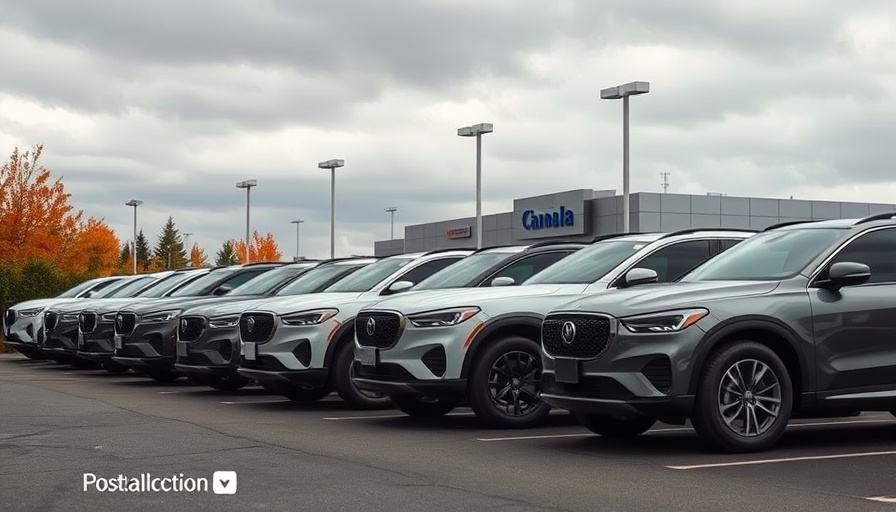
Rising Costs of Car Ownership in Canada: A Troubling Trend
Owning a vehicle in Canada is becoming increasingly expensive, with recent studies indicating that car ownership costs are now rising faster than the country’s inflation rate. A survey conducted by Leger for Turo Canada unveils alarming data revealing that the average annual expenditure for Canadians to own a car or truck has surged nine percent over the past year. This increase comes on the heels of even more concerning predictions that suggest costs could potentially escalate by an additional 25 percent due to forthcoming U.S. tariffs on imported steel and aluminum.
Understanding the Economic Implications
Financial analysts suggest that the import tariffs proposed by former U.S. President Donald Trump, now set to impact various countries around the globe, will translate into increased automotive prices for Canadian consumers. Although Prime Minister Mark Carney's administration has made commitments to mitigate the economic impacts of these tariffs, experts assert that any measures taken will take time to ameliorate the looming financial burden faced by vehicle owners.
Regional Variances in Car Ownership Expenses
The survey highlights that the average Canadian spends approximately $5,497 annually to maintain a vehicle. Interestingly, this average is notably higher in certain provinces, with Ontario hitting nearly $6,000, rendering it the most expensive province for car ownership. In contrast, British Columbia stands out as the more affordable option in Canada for those seeking car ownership. Understanding these regional discrepancies is crucial for potential buyers while assessing their own financial burden.
Tariffs and Inflation: A Perfect Storm
Adding another layer of complexity to this situation, the looming tariffs are anticipated to initiate a ripple effect across the automotive sector. The combination of import taxes and rising inflation rates could discourage consumers from purchasing new vehicles, ultimately leading to a possible stagnation in the market. This scenario could further exacerbate the financial strain felt by consumers who already find car ownership increasingly burdensome.
A Future at the Intersection of Economics and Consumer Choices
As Canadians ponder the future and navigate the potential ramifications of these changes, it is essential to consider how they can strategically respond to this evolving landscape. Some experts suggest that potential buyers may benefit from expediting their vehicle purchases to avoid the impending price hikes. This perspective prompts a broader discussion on the impacts of global tariffs on local economies, consumer behavior, and the future of automotive ownership in Canada.
Understanding Consumer Sentiment and Actions
For many Canadians, the rising costs of car ownership can evoke feelings of anxiety and frustration. The prospect of increased expenses may lead consumers to rethink their transit choices, potentially reshaping their relationship with car ownership. As individuals weigh their options, some may pivot towards car-sharing services or public transit as viable alternatives, reflecting a growing trend in urban areas.
Concluding Thoughts: Navigating a Changing Landscape
The rising costs associated with car ownership in Canada illuminate significant economic trends that merit careful consideration. As tariffs loom and inflation continues to rise, both consumers and policymakers must stay vigilant as they navigate these challenges. Understanding the regional dynamics at play and adjusting consumer behavior in response to these market shifts will be pivotal for Canadians aiming to maintain their budget and adapt to a likely new automotive landscape.
 Add Row
Add Row  Add
Add 




 Add Row
Add Row  Add
Add 

Write A Comment